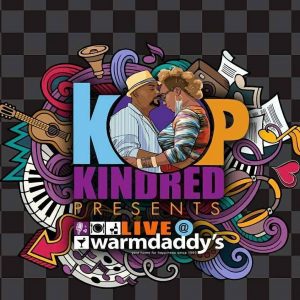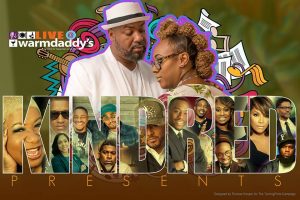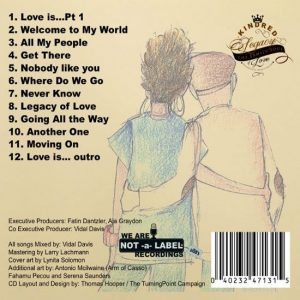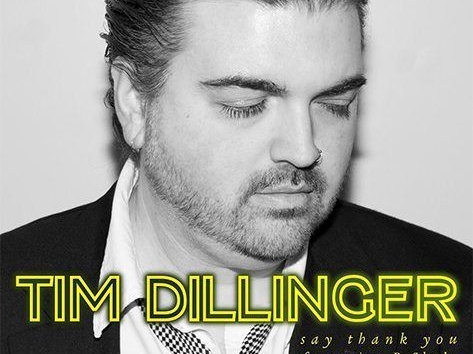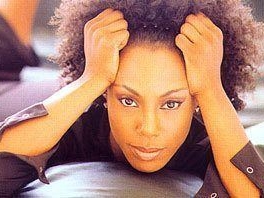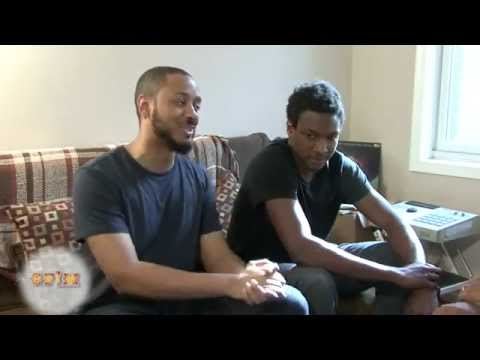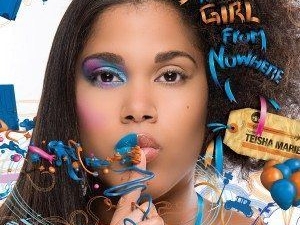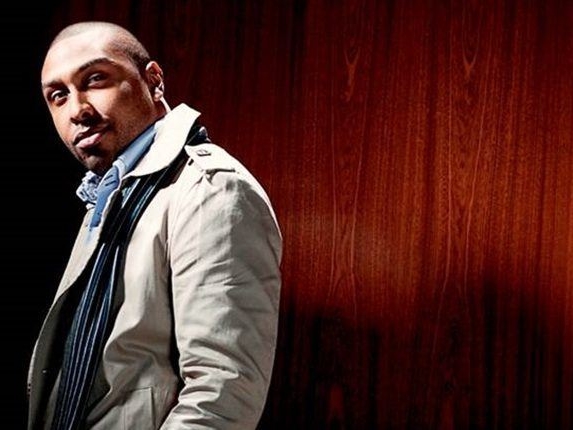Growns, you already know Kindred The Family Soul. But, what you may not know is in 2017 Kindred has been doing a mighty work for keeping the fire lit for soul music and hip hop and keeping the name of beloved veteran artists (many who aren’t that old), independent artists, and underrated artists out in the atmosphere, as well as downright doing it for the culture with Kindred Presents– a live show/interview series in one of the most soulful cities in the country and their hometown/launching pad– Philadelphia, PA.
Fatin, 1/2 of Kindred The Family Soul, spoke with Grown Folks Music generously about Kindred Presents– the intent behind the series, the goals for the series and of course he answered the question, “What is grown folks music? Read the interview below and enjoy. Follow Kindred Presents on Facebook and Instagram.
“It’s an intimate experience.”
GFM: For anybody who’s been under a rock or isn’t on Instagram who doesn’t know what the Kindred Presents series has been this year, first tell us what it is.
Fatin/KTFS: Kindred Presents is a interview/performance series that we do in a small club in Philadelphia called Warmdaddy’s. We bring in national and notable entertainment, people in the arts world, people who are influential blacks and people who we think that their story deserves to be recognized and celebrated in some way, shape, or form. We sit and we speak to the people much like a late-night talk show. It’s an intimate experience for 150 people who get an opportunity to meet and greet with these individuals in a very speciaexperience way. We’ve been doing it now for about eight months. We started it, actually, two years ago almost. We started it two years ago in 2015 and we started with Anthony David and Teedra Moses. Now we’ve done 28 programs [29 at the time of this post]. God willing we’ll go into 2018 with a much bigger, better outlook and focus on what we have behind us and [we’re] looking forward to doing a lot more.
We started it out with the need of feeling like there’s so many left out of the topic or conversation at this very moment of people who have done incredible works and contributed greatly to society, and to the musical catalog that we love as well as arts and entertainment. [There are] just various kinds of people who just don’t really get the shine and the love that we felt like they deserve. If we could shine a spotlight on them and celebrate them in some way and just continue to nurture and keep the conversation going about what they do and the contribution that they make, then we felt that was extremely important.
Giving Back
We come from where people have given to us and we want to be able to give back to them as well. It’s been going really well. We’ve had a lot of exciting and creative guests and some really, really great stories that we’ve gotten an opportunity to hear and share with folks. I think more than anything it’s really about trying to give a priceless experience for an affordable night out for people. We noticed that a lot of times that entertainers– while they may every now and then do meet and greets and things of that nature– it’s usually very expensive and attached to huge ticket prices. So, it’s important to us to do something where people could feel not only [like they were] a part of it… but could afford to be there. Then, we also stream it live [on Facebook] so that the rest of the world could get an opportunity to see it also.
Organic Growth
GFM: So, how did it come about? You’ve talked about the mission behind it, but did it stem from a conversation late one night like, “You know what we should do…?”
Fatin/KTFS: It basically came about kind of organically. To be honest, we had been toying around with doing a radio show style program almost since we came out on the scene in about 2002/2003. We were doing pilots and different things with friends of ours who were artists and playing music that we really like and having conversations with them. That never really progressed into a state of coming into real fruition. Two years ago when we did the first Kindred Presents, we had started doing another pilot for a radio show. It was kind of very interactive and visual, as well as music being played. That didn’t pick up either.
This club Warmdaddy’s, here in the city, which we had done different events at… jam sessions and of course we’d performed there many times and a lot of the great artists from Philadelphia have performed at this place usually… offered us an opportunity to have a night at their club on a Monday night, which is a usually a very slow night for most night clubs or a day when they’re closed. We decided instead of bringing back a jam session style or a place where we would perform on a weekly basis, that we would turn that idea and concept on it’s side and go back to the idea that we had done that two years ago with the radio show. We were going to just have a live component but we would have a live remote of the radio show. That’s kind of where Kindred Presents was born… from the thought of a live remote event for the radio show where we would go out into the city and do an actual concert, or bring people into town and then utilize that content as a part of the radio show… much like a lot of radio shows across the nation where they go out remotely to different sites and speak and talk to the people at different locations. That was really the concept of it.
So, when we started doing it at Warmdaddy’s… I believe it was in February or March of this year… the first guest was Rahsaan Patterson, who is a very revered artist who we love very, very much. We just wanted to be able to share some of his story. That’s lead us to many other great artists who have graced the program.
Carving Out A Niche
GFM: So, you started out with the intent of a radio program, but now that it is visual– now that you do live stream, do you have an interest in shopping it as a show for television?
Fatin/KTFS: Yes, we want the platform of the program to get bigger, but at the same time we’re just trying to take one step at a time and see what the real, right, way is to get it to as many people as possible. I can tell you the funnier thing about wanting to get it on television… even the thing about radio… is we’re all looking for that next thing. We want to take our thing and expand our base and expand the audience. But, when we’re on the internet we’re talking to everybody. Really, the entire audience is already there. This whole thing of wanting to go to television, or go to a higher streaming platform, or what you deem to be something that’s bigger than you– really in retrospect we’re all talking to the same people. You’re taking away some of the people who are watching TV when you live stream. Those bodies, or those eyes watching all of these internet programs are taking from the audiences that could be watching anywhere. We’re giving more options and more choices for people to go to for programming.
So, really the bigger thing is about really carving out your niche and working that lane super, super, super hard and catering to the people who really enjoy what you do. It’s just like being an independent artist versus signing to a label. You have to have reasons for why you want to take it to a different place or get more backing. Now, with our show it’s from the muscle. The costs that are associated with it we have to pay. There’s no underwriting of the situation. We don’t have any sponsor or anything of that nature at this time. But, we’re trying to work smarter. We’re trying to work where we understand what we’re doing and of course monetize at some point or another what we’re doing because we feel it’s necessary and we want it to stick around. We’re just trying our best to make the right decisions as we move forward for whatever the next step of programming might be.
“We’re living in the social media world”
GFM: Do you see yourselves cataloging it so some of us can catch up with some of the episodes?
Fatin/KTFS: Absolutely, it’s all cataloged. It’s all on demand in a sense already right now. People can go back and watch all of the programs that we’ve done because we stream it live on Facebook Live. Every archived show– for the most part– is there now. We are taking the episodes that we have already done and shortening them and editing them and adding additional content and things that people may not have seen so that when and if we do decided to package and put it the form of a television program or something like that there will be stuff that people haven’t seen or don’t know about that’s in there. You wouldn’t just go back and see the exact same thing that you’ve seen on Facebook on a television network. We’ve captured a lot of great content. We have a lot of other creative ideas of how to package what we’re doing and sell it from a different angle.
For right now, we’re living in the social media world and the social media space where most of us share just about any and every thing. We don’t really see any problem with that. We want people to find it organically and to get down with what we’re doing. It would be nice to have more and more people watching it live, but most people don’t sit down to watch their favorite show anymore at 8:00 or at 8:30 the way that we used to do with The Cosby Show and A Different World. You binge watch stuff. That part of it is kind of cool with the Netflixes, and the Hulus and the Rokus and all of the different streaming platforms that are available. People very rarely stick to a time slot of watching something. If somebody’s watching a little bit they’ll watch a little bit now and they might have to catch a little bit later. So, we’re really trying to deal with all of those different animals and like I said, work smart and make sure we’re ahead of ourselves.
Curating Guests
GFM: You say you’re working smarter, but you guys certainly cannot work any harder. You have had a ton of guests since the series began. That’s an impressive list. If I’m correct there’s gotta be close to 50 guests that you’ve had in the series in 2017 if not more.
Fatin/KTFS: So far we’ve had 78 guests.
GFM: Talk about that. Obviously, you’re in the music industry. A lot of these artists I’m going to assume are friends in the industry, but how did this list come about? The second part of this question is, now are people calling you like, “Man, we wanna get up there and do your show.”
Fatin/KTFS: That’s a good question. Actually, we are in the entertainment industry so we do have lots of friends in the business and we do have connections to lots of different people which makes some of this easier, but it also makes it harder. We’re known more for being artists. Artists, in a lot of instances, are a little bit more reluctant to do our program probably than they would be to do your program because they don’t see you as being just like them. Sometimes it makes artists wonder, ‘What are they trying to do… or why are they trying to do that?’
I’ll share something… because I’m very transparent and I really don’t mind discussing things from the real perspective. We pay the guests to be on our program much like a late-night talk show would. Where as in most instances, as an artist I know very well most artists… like I’m doing your show… no disrespect to you… you asked me and I said, ‘Okay, I’ll do that.’ You’re not paying me. I’m going share my story or [answer] whatever questions you ask me. We’re not live. I didn’t have to come to your place or travel to do this. We’re just talking on the phone, but you didn’t have to pay me to do this. But, we pay these people because we are filming them. We are utilizing their talents. We are selling tickets for them to come and all of those different things so we pay them. It’s a nominal fee. It’s not the fee that they would get to go and perform from town to town to town, but the time that they’re spending with us would be much like the time that would spend going to perform somewhere. In that regard, they are deserving of some sort of payment to be a part of the program. That payment is different from artist to artist. Sometimes artists don’t see that the same [way]. They see it like, ‘Well, I’m going to perform’. So, for every one guest that says yes, we have five or six who don’t… for whatever reason.
But, as time has gone on and the more people that you get on your program– yes, it makes it a little easier. More people become aware of what you’re doing. You asked, are people now calling me? Yes. There are individuals who’ve called me who I have loved all my life and who I revere as special talent are now reaching out to us about being on our program. That is very encouraging and makes you feel like, ‘Hey, I’m on the right track. I’m doing something right here.’
Serving the Needs of the Underserved
We also created this program because we realize that late night talk shows… whether it’s Jimmy Kimmel, Jimmy Fallon, David Letterman, Regis and Kelly, Good Morning America… we’ve never been on any of those programs and we’ve been in the business almost 20 years. We have number one records, lots of history to our credit and a catalog and we’ve never been on any of these shows. They tell you for the most part I guess in a sense that you’re not worthy of being on the program. Or, ‘Your audience is not the audience that we’re trying to reach.’ [That] would be the only reason that you would assume that’s why you’re not there. While I know that’s true for us, it’s true for a lot of the other individuals that we’ve had on the program. No, not everybody that we’ve had on the program has had those issues. Some of them yes, they have done late-night television. But for every one of them that have, there are about five or six other artists who haven’t who have the credibility, who have the notoriety, who have the catalog, who have the talent to be on these programs, but some reason they aren’t on the radar of the programs. We wanted to create a program where you are on the radar.
But, even in creating that program there are five or six artists that we’re leaving out. Whether it’s up and coming artists or artists who are on the verge. We don’t feel like they are as notable as could be so that we can sell the tickets on their behalf. So, now we’re trying to figure out ways to infuse artists that we can’t put on the program, which is the same thing I feel those shows I’m talking about should be doing. You have to figure out a way to make it a fair playing field for everybody to be involved. It’s no different the radio playing five or six different artists all day long, when there’s 300 more who are trying to be on that same station. You have to figure out a way to be fair and make sure that you’re facilitating and giving everybody ample opportunity to be heard and to be seen and to be celebrated. So many people make great artistic expression that deserves the light. We’re just trying to be another program. We can’t be perfect. We can’t be everything to everybody, but we want to be the very best that we can be and serve the needs for the underserved.
“We’re fans of these people as well…”
GFM: We think you’re doing a very good job, that’s why reached out to you. We kept noticing the [social media] posts and then it just got to point where it was like, ‘Okay, it’s time to talk about it.’ You guys are setting Philadelphia on fire with this and I think what you’re speaking about when you speak about your series is a platform, an outlet and a look. Hopefully, more artists will see it that way instead of looking at it like, ‘They want me to come and do something for them.’ Hopefully, artists will start to gain the perspective of how your platform is serving them, serving creativity and artistry in general and serving the culture, etc. Hopefully, they will start to look at it that way.
Who sticks out in your mind as one of the most memorable guests that you’ve had?
Fatin/KTFS: Because we’ve had so many greats, it’s kind of hard to just sum that up in one or two people. They’ve all had incredible stories. They’ve all shared knowledge and information with that we had no idea [about] in doing the research or in knowing them from their music or whatever it is that they have done that we had already been privy to. That is the most beautiful thing about the show. We’re fans of these people as well as the people who are sitting out there in the audience [and] as well as the people who are watching it online. We wanna know. We’re enamored by what they’re gonna say next. People like Michael Eric Dyson, Bilal, Jill Scott, Kenny Lattimore, Miki Howard, Angela Rye, David Banner… The Baylor Project.
A couple of artists who have graced the stage this year are nominated for Grammys this year. They shared great information with us about their stories and their journey. Then, to see this come to fruition for them off of years of hard work and toil and struggle has been very invigorating. Some of them have even graced our program with the music that they ended up being nominated for. The first time that they performed some of that music was on our program. It’s an invaluable experience and just really, really encouraging and really fueling the passion to continue in this vein. We never really know we may come across. We never really know what story we may share that may be beneficial to… whoever it may be beneficial to. That just makes you feel incredible. We’re just really looking forward to sharing a whole lot more in 2018 as well as catching people up on whatever they haven’t been familiar with that we were able to do this year.
“The thing that it blesses us mostly with is inspiration.”
GFM: You used the word ‘invigorating’. How has doing this series… bringing other artists out to speak to you and to perform… what has that done for you and your wife as artists? What has that done for Kindred as artists and what has surprised you? Has it given you any perspective or any way of looking at what you do differently now that you’ve spoken with so many artists. What has it blessed you with as artists?
Fatin/KTFS: The thing that it blesses us mostly with is inspiration. It’s inspiring to hear other people’s journey, to see their story and to hear them personally discuss it with you. It’s also inspiring and it connects with you that there are so many similarities between you and said artist no matter where they come from. A lot of our stories are very similar. The characters may change and the experiences somehow may have differences to them, but they are very similar. Creative people usually run together and they’re always connected to one another. In the quest for your own individual identity you come upon a community that in some way or another helps to mold, shape and form whatever it is… the ideas, the concepts and the things you end up doing… are very interconnected to other people, and their doings and the things that they have going on. That is just a blessing. To see so many people who have come from nothing to something and made such great strides and contributions in society and then to feel like, ‘Hey, I’m one of those people as well,’ that further validates that for you. I just have to say it’s very inspiring.
We’re not too different than those people who are sitting in the seats and the audience members who are behind their computers, or phones watching this. We’re all looking for inspiration. We all need to hear others tell us things that reaffirm the passions that we have– to let us all know that it’s possible– that can be done. We just have to put our noses to the grind and work at it everyday in order get to these places. These hurdles that we’re gonna jump over… that’s how we’re gonna get there. It’s very beneficial to hear other people’s stories and their wisdom that they have to share to help you along your journey.
“We wanted the dream to be a reality.”
GFM: Are there any plans to take it on the road?
Fatin/KTFS: Not really, because I feel like it’s on the road every time we stream it. You can be in Africa. You can be in France. You can be in Europe. You can be in Texas. You can be in Florida. You can be anywhere and watch what we’re doing in Philadelphia. What we really more so want to do is from wherever we are– we wanna make sure that you can be a part of it as well. Either [by] raising the platform, or building onto the numbers that we already have for marketing and promotion of what we’re doing so that more people know that it’s available and more people know how to see it.
We haven’t gone on any press tour. We don’t get on everybody else’s shows to talk about this. One of the main reasons I didn’t get a publicist and go after all of the traditional ways that people try to spread the word about what they’re doing is we wanted to a lot of the work first. We wanted to build the house before telling people, ‘Hey we’ve got this land and we could build something there.’ We wanted to show people, ‘There’s a house that we’ve been building over here. You can see now. You can go inside and take a tour of it.’ We wanted to have something really tangible to be able to talk about as opposed to, ‘This is what we want to do. This what our dream is.’ We wanted the dream to be a reality. [We wanted] to really have a physical brick and mortar place for people to experience and enjoy and then from there try to continue to build. Or, maybe build other houses– because at least we have the model that people can see.
I think now, I feel a lot more comfortable with interviews like this or talking to other people, because I feel like I know what we are doing. I know what the plan is. I know what our vision is and I speak that now.
Dream Guests
GFM: Would you dare to say out loud the name of a dream guest you have for Kindred Presents?
Fatin/KTFS: One of the dream guests is we would try to get Michelle Obama. I’d love to get Barack Obama. These are big dreams I suppose you can say… but even on that… those might be large on the platform, but I don’t think that’s impossible. I think that’s it’s very possible to be able sit down with some of these people. We have a lot of people in the queue who we are talking to. We don’t really see anybody as an impossible guest to get. We’re just working to have the legs underneath us and have a strong enough program that whoever we reach out to we can feel confident. We know we could have a great discussion with them. We know that they would have a great time talking to us and our audience. We want to make that seem worthwhile… not seem… to be worthwhile to them to share some time and energy with us at our program. Those are two people and I’m sure everybody that I would talk to that has a show would want to talk to them as well if they haven’t already. They’re high on the list, but there are a lot of great entertainers who we just really look forward to having and we hope to be able to lock them down.
We Are Not A Label
GFM: You are now independent artists. I guess you were before, but now you’re really independent. I wanna talk about the name behind your company– We’re Not A Label. Talk about going truly, truly independent– no distribution… none of that… and the company you formed and what that means.
Fatin/KTFS: We’ve been a part of three record labels previously– Hidden Beach Records, Shanachie Records and Purpose Records. We’ve been distributed through Sony and Universal. We’ve always had the independent sensibilities. We have never not thought about the hands-on approach of directly touching our consumers, feeling connected to our consumers, letting them know that we value and respect their dollar, their time, their energy and their love for what it is that we do. We are nothing without those things. We have never felt like we can’t get our hands dirty and that we are not of the people. That has helped us with this journey to have to be… and I say ‘have to be’ independent artists… because that is not necessarily a choice of most artists these days. That is their circumstance. Though it sounds good to hear huge artists who were once selling millions and millions of copies… for them say that they’re independent and they’re doing on their own now… it’s not something that everybody is always necessarily happy about, but it definitely serves it purpose. It helps artists to really get connected to what it is and who they are speaking to right now. I value the experience. I value the information I have learned and the wisdom I have gotten from doing it this way.
The reason that we called what we release our record on We Are Not A Label is because as we were about to put out music we realized that though we are artists and we are taking the bull by the horns, we realized we are not a traditional record label. We do not have all of the departments. We do not have all of the knowledge that a traditional record label would have had and we do not have all of the resources at our disposal that a traditional record label would have. But, what we do have is a product. What we do have is the desire. What we do have is an audience and we want to capitalize on those things. We realized we’re not a label– we’re artists who are making music and we’re putting it out on our own. So, as you’re doing the paperwork and they’re asking, “What’s the name of the label?” It’s like, ‘Umm… well… we’re not a label.’ [laughs] It was that simple and that’s what I wrote in the box where it says what’s the name of the label. It might seem funny, [but] that within itself to me was a moniker. It spoke loudly.
It’s funny how often I hear people ask me about that, but what’s even funnier is most people don’t read the liner notes anymore because most times they don’t see it because it’s digital. Most people buying the record… if they’re buying the record… come off of a space where they don’t get to see the back of the record. [If] at our shows [ and at] the small records stores that may still exist people actually pay attention to that, [then] that’s always gratifying when they catch on and they see that and it means something to them to even ask about it. I commend you and thank you because it shows that you have a different level of dedication to the music, people who make it and how they’re doing what they’re doing right now to even be aware of that.
In a nutshell, that’s just as simple as that and most artists– they’re not label either. Whether they turn their name around backwards or they name it after their kids– they’re not really record labels. They’re just names for a company. You’re just kind of coming up with something. It’s not a well defined as Universal, Motown and Epic Records. Pick something that you believe speaks to your story and who you are to decide to call what it is that you’re releasing your new music on.
Grown Folks Music
GFM: What is your definition of Grown Folks Music?
Fatin/KTFS: Grown folks music brings to mind a certain level of maturity that comes with the music and maybe a message in the music. But, naturally when I think of grown folks music I automatically think of soul. I think of the ’70s. I think of Marvin Gaye and Al Green. [I think of] Aretha Franklin, Gladys Knight, Motown, Philly International, Teddy Pendergrass, Anita Baker, Phyllis Hyman… that’s what comes to mind when people utilize that terminology. [It’s the] same way when they say a grown and sexy party. You know the kids ain’t gonna be there. We gonna be listening to Marvin Gaye and we’re gonna be drinking wine [laughs].
I think that grown folks music for the most part is just music that identifies with grown folks… with grown people. People who are of a certain age and maturity who listen to music for a certain thing than just the beat. There’s a little bit more nuance. There’s a little more depth to it. That’s not to disrespect young people’s music. We all hear things differently. Our parents probably didn’t see rap music as being grown folks music, but now a lot of the rap music that was in the ’80s and ’90s we can look at it now in 2017 as grown folks hip hop. It’s not just grown folks soul anymore. Anything that has a certain level of maturity or a message in that music is now considered grown folks hip hop. You’re saying grown folks music… not grown folks jazz. That would be like asking, ‘Is there a such thing as young folks jazz?’ You can’t just label hip hop and R&B as being a thing that is only for the kids.
In 2017, 78 artists, activists and cultural influencers graced the Kindred Presents stage. A few names include, Eric Roberson, Karyn White, Al B. Sure!, Leela James, Avery*Sunshine, Eric Benet, Ro James, Bilal, David Banner, Marilyn Mosby, Kenny Lattimore, Jill Scott, Joi, Mel’isa Morgan, Lady Alma, Ayanna Gregory, Zo!, Angela Rye, Musiq Soulchild, Glenn Jones, Wes Felton and Raheem DeVaughn, Miki Howard, CeCe Peniston, Najee, Frank McComb and more!
Check out the video below to see all the names of the artists [many who are your favorite] Kindred The Family Soul presented in 2017 with more goodness to come in 2018!
RELATED POSTS
August 16, 2013
GFM Spotlight Interview: Tim Dillinger
June 17, 2011
GFM Spotlight Interview – Adriana Evans
February 4, 2010
GFM Spotlight-K. Michelle
August 22, 2013
GFM Spotlight Interview – Teisha Marie
September 20, 2011

